Are you tired of wheezing lungs, spending money on endless cigarettes and smelly clothes? Colleen learnt how to stop smoking for good, and today she's here to show you that you can too.
I was a smoker from my early teenage years up until the age of 29.
There are a few options when it comes to stopping smoking - cutting down, vaping, or doing what I did - and going cold turkey.
There are lots of stop smoking aids that helped me to quit cigarettes and roll-ups, and I'd like to share them with you.
1. How to stop smoking with THE Book
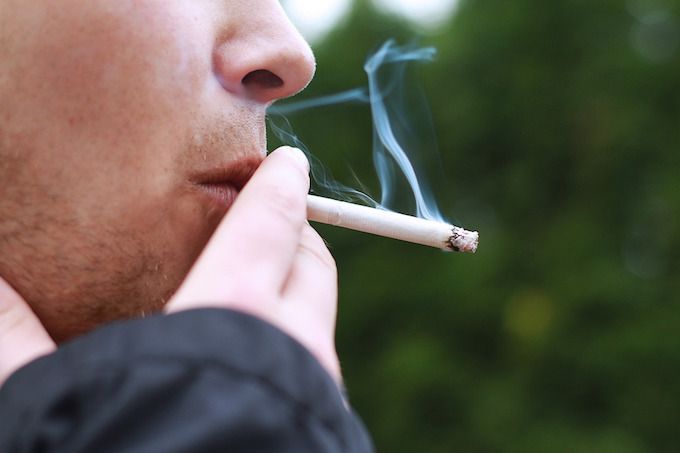
The Easy Way To Stop Smoking by Allen Carr is fantastic. The book turns quitting on its head and doesn't tell you it's hard (which we've been led to believe).
Instead, Carr tells you ALL about the wonderful benefits you'll receive when you stop, and the enlightening fact that you're not giving up anything at all - you're gaining, in health, wealth and much, much more.
I'll be honest with you - I found it easy to hide the book away, to read it slowly, and to completely avoid finishing it because I knew I'd have to quit at the end.
Eventually, I knew I REALLY wanted to quit (see below) and got the audiobook version. I couldn't escape it once it was coming out of my headphones and I quit the day I finished listening to it.
I even passed the book onto several friends who also quit using his method. It's one of the best stop smoking aids I found, so if you're serious about becoming a non-smoker, I urge you to give it a read or a listen.
2. Be certain that you want to quit
There's absolutely no point in quitting smoking until you're truly certain you want to do it.
If there's even a part of you that thinks, the feeling of 'I don't really want to quit' - then this isn't the right time for you - you're just not ready.
Once you've decided that you no longer want to smoke, you will be ready.
3. There's no such thing as 'One Last Cigarette'
'Just one cigarette' does not exist. You need to get it in your head that smoking is a chain - one cigarette leads to another and you're just kidding yourself if you think that it doesn't.
It's highly probable that you thought the first cigarette you had might be the last one, or that the last time you tried to quit you had that elusive 'one last ciggie', only to lead to another 'last ciggie' and another.
If you really want to stop smoking, you must be honest with yourself. Understand smoking is a chain reaction and the only way you're going to break that chain is to quit, for good.
4. Get the Smoke Free app
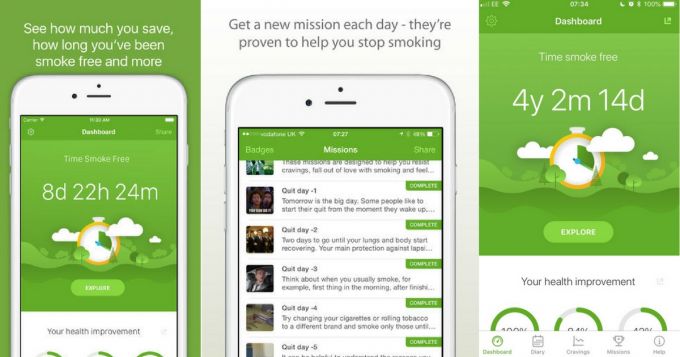
I can't recommend the SmokeFree app enough.
Once downloaded you enter the following personal smoking information:
- Your quit date
- How much a packet costs you
- How many cigarettes in the packet
- How many smoked each day
From the information you give, the app can work out how much money you've saved (including annual savings).
The app also lets you watch your health improve with a handy percentage bar. This includes the following health targets:
- Pulse rate
- Oxygen level
- Carbon monoxide level
- Nicotine expelled from the body
- Taste and smell
- Breathing
- Energy levels
- Bad breath
- Gums and teeth
- Tooth staining
- Circulation
- Gum texture
- Coughs and wheezing
- Risk of heart attack
- Risk of lung cancer
As the time passes since your quit date, you will see the bars fill up to 100%. This enables you to celebrate small victories and gives you more motivation to continue as a non-smoker.
I still look at the app years later - it's lovely to see how far I've come without smoking a single cigarette.
(That's 4 years, 2 months and 14 days in case you were interested!) This is one of the most motivating stop smoking aids I found and really recommend you try it.
5. Drink lots of water
We all know it's important to drink plenty of water, but it's especially useful when you stop smoking.
During the first two weeks after quitting, you may experience headaches due to nicotine withdrawal. Staying hydrated by drinking lots of water will help ease any headaches that occur.
Water helps you to think clearly. When you're drinking, take time to reflect on the reasons you quit smoking in the first place. This will help to refocus your goals and make you feel more determined than ever.
6. Understand nicotine withdrawal - and remember that it will pass
Allen Carr's book will help you to understand all about that nicotine monster. The act of smoking (not a habit, which he also explains) boils down to a nicotine addiction.
This addiction can affect you physically and emotionally when you quit, however it's important to remember that this is temporary.
Every time you feel withdrawal symptoms, it's your body getting over nicotine addiction. You may experience:
- cravings
- difficulty concentrating
- sleeping problems
- anger, irritability, sadness
- dizziness
- cold symptoms
When I quit, I felt dizzy, had headaches, had cold symptoms and felt terrible - but it passed. Nicotine withdrawal fades and should clean after 2 - 4 weeks.
Sign up to Smokefree from the NHS when you stop smoking and you'll get daily e-mails to help keep you on track.
You can do it, I believe in you!
7. Write down why you want to quit smoking

Get a piece of paper and make a list of the reasons that led you to stop smoking.
Whether it's being able to run, save money, or something else, pop it in your wallet or purse and bring it out every time you want to remind yourself why you want to stop.
8. Don't go outside where your friends smoke
If your friends like to smoke and often take trips outside the pub in groups, don't follow them out there. In the future, you can join your pals, but when you're just starting out as a non-smoker it's easier to not surround yourself with smoke.
9. Clean your clothes, coats, bags, home and car
You never realise it until you stop smoking, but smoke stinks. Unless you're somehow managing to smoke with a giant fan next to you so it doesn't stick to your clothes or hair, it really does pong.
When I was a smoker, I used to kid myself that I liked the smell - and even after I quit, I did too.
Before you quit, start chucking all those coats and clothes in the washing machine, treat your car to a nice clean and get rid of the smell. Acknowledging the horrible smell is one of the easiest stop smoking aids you'll find, and will serve as more motivation for you to stop for good.
10. Rid your house of smoking paraphernalia
I remember finding an embarrassing amount of lighters in all shapes and sizes, as well as dry packets of tobacco and endless filters all over the house.
Clear your house of everything to do with smoking and focus on your new, smoke-free existence.
You're a non-smoker now, remember!
11. Tell all your friends you're doing it so they can help support you
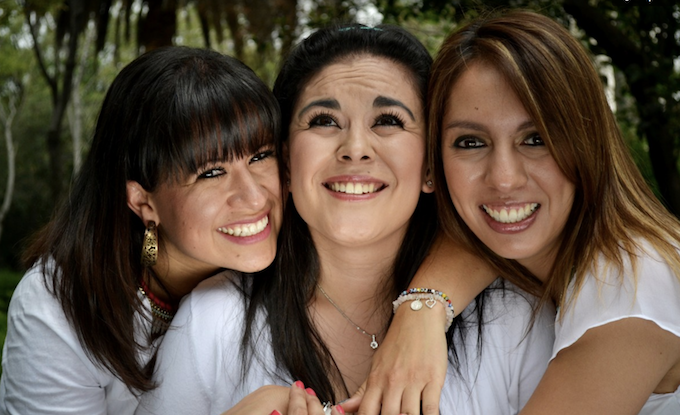
Let those close to you know that you're about to quit smoking. Hanging out with friends or trying different activities will serve as a distraction from smoking and help to take your mind off your addiction during those first few tricky weeks.
Your friends will be supportive and most likely will want you to quit, so don't be afraid to lean on them a little.
12. Tell the people at work (so they know to be gentle with you)
As you know, nicotine withdrawal can affect your mood. It's a sensible idea to let those closest to you at work know that you've quit smoking.
Most people (especially ex-smokers) will be very understanding and will support you.
13. Be gentle with yourself
Don't be too hard on yourself when you quit smoking. Even if you fail the first time, it's important to remind yourself of the reasons you want to stop smoking in the first place, and keep trying again.
Be kind and go easy on yourself - it's a new way of life for you and nicotine withdrawal can be tough. Treat yourself to something shiny and new - you deserve it.
14. Educate yourself on the changes that happen when you quit smoking
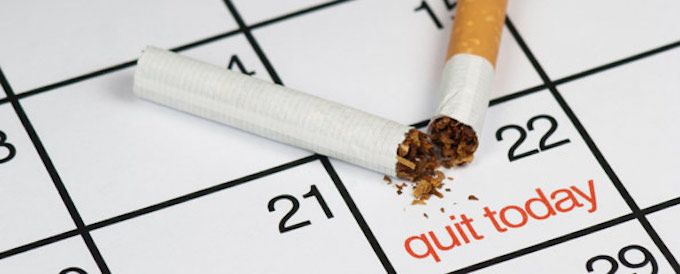
Reminding yourself regularly of the benefits of quitting smoking will help keep you on track and feeling good about your choice to stop.
- After 20 minutes your heart rate drops
- After 12 hours your carbon monoxide level in your blood drops to normal
- After the first 2 weeks (up to the first three months), your heart attack risk starts to drop. Your lung function begins to improve.
- In 1 - 9 months your shortness of breath and coughing decreases
- After 1 year the added risk of coronary heart disease is half of that of a smokers
- In 5 years your stroke risk is reduced to that of a non-smokers
- In 10 years your lung cancer death rate is about half that of a smoker's. Your risk of cancers of the mouth, throat, oesophagus, kidney, pancreas and bladder decreases.
I truly hope my blog post helps to kick-start your journey to becoming a non-smoker. If you have any questions I'd love to help out, so pop them in the comments below.
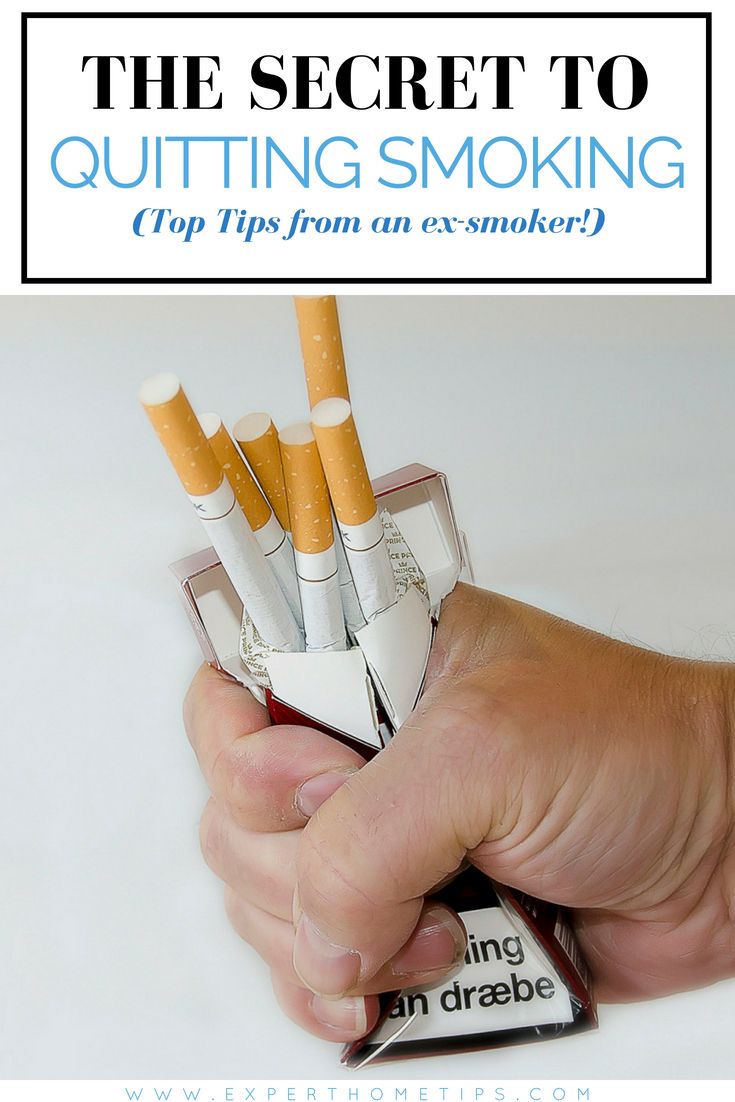
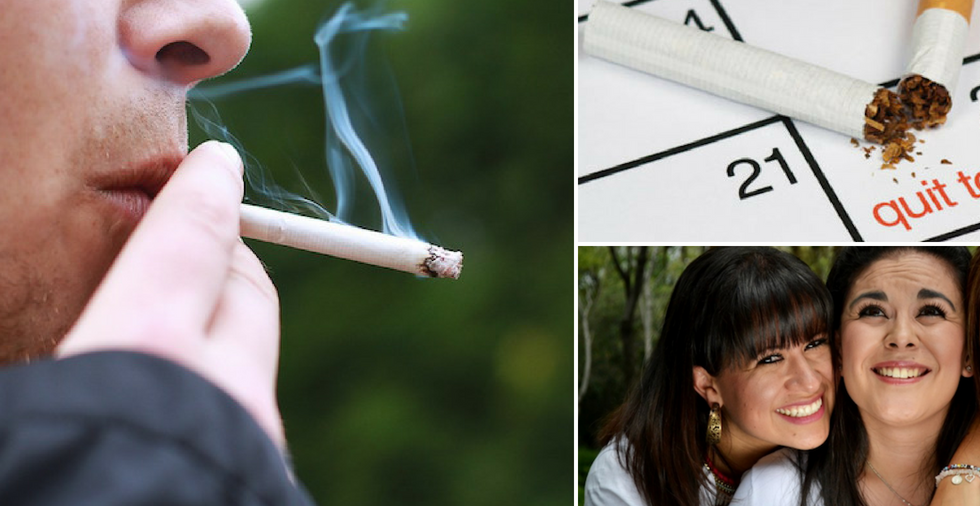
How did you break the habits of coffee or meal times, read the book felt really ready now i feel rubbish.
Breaking the habit of smoking during coffee or meal times can be difficult, but replacing smoking with a different activity and avoiding triggers can help. In addition, having a solid support system and being patient with yourself while celebrating small victories along the way are important for making lasting changes.
WOW! This is such a great piece of information for all smokers. I quit 40 years ago by going cold turkey, I had no cravings, or withdrawal symptoms and always knew how lucky that was. I totally agree that it is pointless even trying to give up smoking unless you really want to, because unless you are at that stage, you will always find an excuse to start again; you won't quit with that in mind, but it will happen. These days we know so much more about the damage smoking does to not only you, but also anyone near you. With all the help out there, including your GP practice, Apps and of course Allen Carr, it has to be worth saving this information for the day you are ready to quit. Well done Expert Home Tips.
Thanks, Anne!